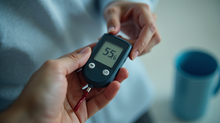Diabetes and COVID-19’s Delta Variant Infection
- Maureen Sullivan
- Oct 4, 2021
- 2 min read

While many of us, including myself, thought the coronavirus pandemic would be long over by now, a powerful strain of the virus, the delta variant, has surfaced and is quickly affecting those in its path. The coronavirus (“COVID-19”), the official name for the disease caused by the SARS-CoV-2 (2019-nCoV) virus, has wreaked havoc worldwide. At this time, the virus has infected 209 million people, and resulted in 4.39 million deaths. The Federal Drug Administration approved 3 versions of vaccine to address this virus- millions of people have been successfully vaccinated- and now we face another variant of the virus.
The B.1.617.2 (delta) variant of coronavirus is reportedly more than twice as contagious as its predecessors, and is proving to cause an even more serious version of the viral illness. Fully vaccinated persons are testing positive for the virus, hospitalizations are again on the uptake, and those with compromised immune systems are at greatest risk. The good news is that the mortality rate was lower by 50 percent in the fully vaccinated group with COVID-19 infections, when compared to those partially (or not at all) vaccinated.
Persons with a preexisting diabetes condition were noted to have poorer outcomes (including serious complications and death). Approximately 25% of those admitted to hospitals for COVID-19 had a history of diabetes. Beginning in September, 2021, a 3rd “booster” vaccine will be offered for those at highest risk (who have previously received either the Pfizer or Moderna brand vaccine).
The Centers for Disease Control and Prevention are recommending the booster vaccine for people who are moderately to severely immunocompromised:
Receiving active cancer treatment
Received an organ transplant/ stem cell transplant within the last 2 years
Advanced HIV infection
Receiving drugs that suppress your immune response
Additionally, people 65 and older and individuals in chronic-care facilities are expected to get boosters first, along with front line health workers.
We still have a long road ahead of us to eradicate this coronavirus pandemic. During these stressful, challenging times, we must all do our part: wearing a mask, socially distancing, diligent handwashing, staying home when sick, and maintaining good personal health practices. These simple health behaviors will lower the rate of virus transmission and help protect ourselves and our loved ones.
References



































Comments